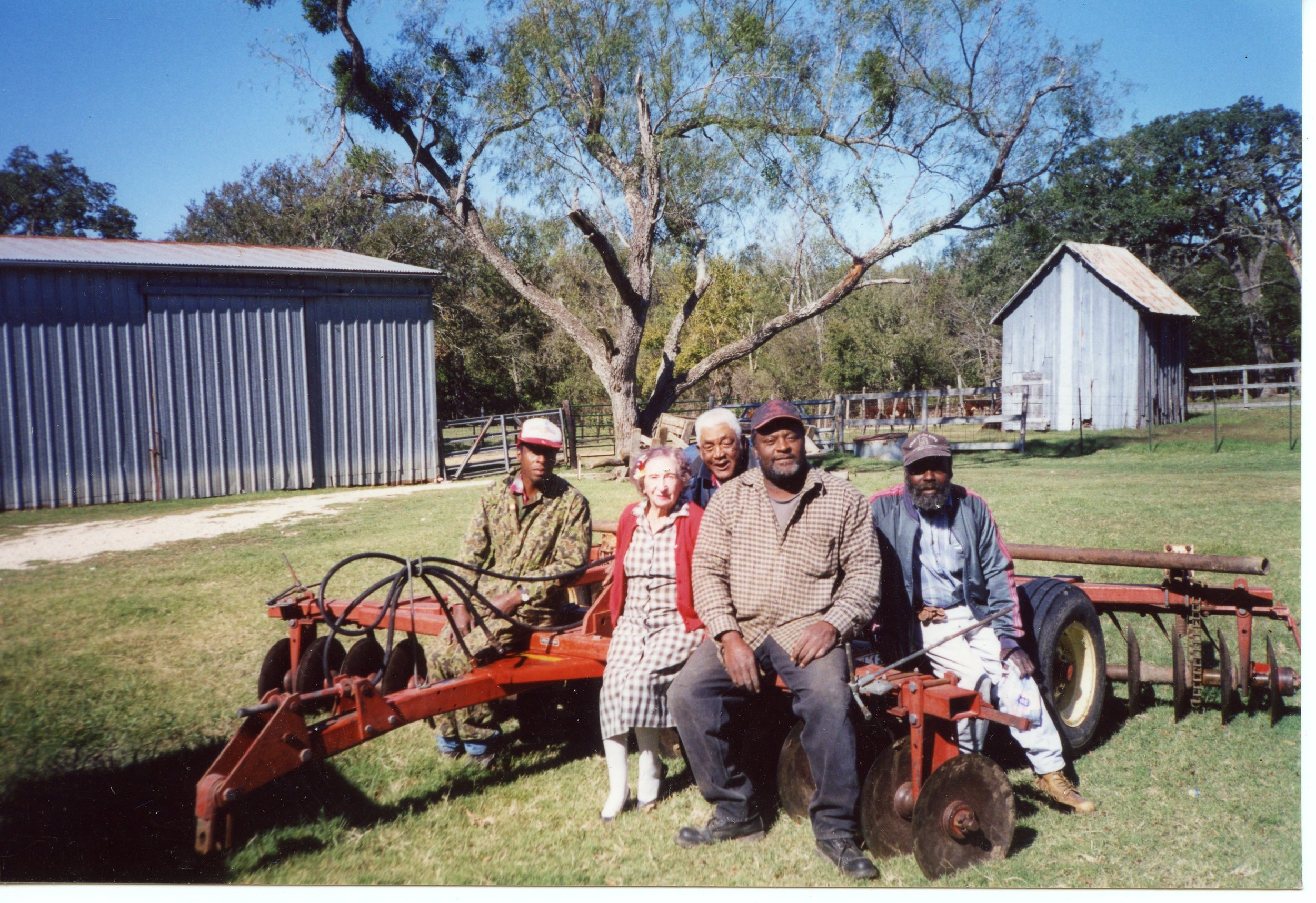History & Vision
BASSETT FARMS
What is known as Bassett Farms encompasses 2,400 acres of land in Limestone and Falls Counties. Henry Bassett was born in New Haven, Connecticut in 1817, and moved to Texas in 1869, settling in Grimes County. In February 1871, he purchased land near the headwaters of the Little Brazos River northwest of Kosse, where he established a cattle ranch and cotton farm. After Bassett’s death in 1888, the operation was overseen by his widow, Hattie Ford Pope Bassett (1851-1936) for nearly five decades. A variety of agricultural functions took place on the property, including livestock, corn, cotton, and peach trees, and the family continued to acquire additional acreage that was used for grazing or rented to farm tenants. Bassett Farms is an enduring example of rural large-scale Texas farming and ranching in the 19th and 20th centuries.
Young Hereford cattle grazing in the front yard of the Bassett House c. 1950.
The property was donated to Preservation Texas in 2012 by the late Mrs. Willie Ford (Bassett) Sparkman (1913-2010), who was one of five granddaughters of Henry and Hattie and their last living descendant. Mrs. Sparkman shared Preservation Texas’s vision that this large, rural cultural landscape could be preserved, interpreted and shared as part of a wide-ranging educational program.
Mrs. Sparkman and Bassett Farms ranch hands at the Bassett Home Place c. 1990.
CENTER FOR HERITAGE EDUCATION
Preservation Texas is in the process of developing the Bassett Farms property as the Preservation Texas Center for Heritage Education. Programs will be developed that will enable the Center to operate as a revenue-generating retreat and training center for preservation and conservation, serving professional, student and amateur audiences from public and private schools, institutions of higher education, state agencies, and the general public.
The rediscovery, restoration and interpretation of the historic natural and cultural resources of the property will afford opportunities for Texans of all ages to participate in hands-on workshops, projects, lectures, seminars and experiences in an immersive setting unlike any other in Texas. These would range from day-long field trips to evening lectures to weekend-long visits. Additionally, historians, architects, archaeologists, naturalists, preservationists, and artists working in Texas will be encouraged to participate in various residency programs.
UT-Austin architecture and historic preservation students visiting the Bassett Home Place in 2018.



